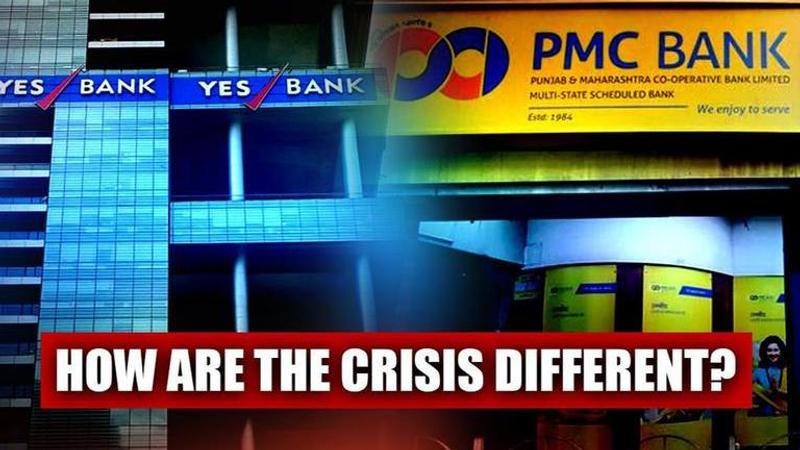Published 19:16 IST, March 6th 2020
PMC Bank Scam Vs Yes Bank Moratorium: Key differences between two recent banking crises
With the Reserve Bank of India (RBI) superceding commercial bank Yes Bank on Thursday for a period of 30 days, many have likened the scenario to PMC Bank scam

With the Reserve Bank of India (RBI) superceding commercial bank Yes Bank on Thursday for a period of 30 days, many have likened the scenario to the PMC Bank scam which spread panic amongst depositors in September 2019. While RBI has assured that depositors need not panic as the cap on withdrawals has been set at Rs 50,000, several depositors have faced issues as ATMs have run dry due to the sudden rush to withdraw cash. PMC depositors still face severe crunch as withdrawals are still capped at Rs 50,000 till 21 March 2020.
Here are key differences between both banking crisis:
PMC Bank Scam
- RBI action
On September 21, the RBI took control of the government-run Punjab and Maharashtra Cooperative (PMC) Bank bank for six-months capping withdrawals at ₹1,000 per account and disallowing the bank to make any fresh loans for six months. Amid several depositors protesting in front of the government and the RBI, the withdrawal limit has been increased to Rs. 40,000. Moreover, the Supreme Court has also stayed the Bombay High Court order directing sale of bankrupt HDIL to ensure repayment of dues and refused to the RBI-sanctioned limits on withdrawal. The Maharashtra government is mulling merging scam-hit bank PMC bank with Maharashtra State Co-operative (MSC) Bank and the RBI is yet to announce any scheme to revive the state-run bank.
- Economic offences
After the takeover, PMC Bank had admitted that one large account-Housing Development and Infrastructure Ltd (HDIL) was the sole reason for the present crisis. Following this, the HDIL directors Sarang Wadhawan and Rakesh Kumar Wadhawan were arrested by the Mumbai Police's Economic Offences Wing and the ED in connection with a fraud of over Rs 4,355 crores. PMC Bank officials gave loans to HDIL between the year 2008 and August 2019 despite not paying the previous loans. Six depositors' deaths have occurred due to insufficient cash since then. PMC Bank which had Rs. 11,500 crore deposited in its 137 branches, has already depleted to Rs 200 crores as Tax officials have asked to pay TDS. Meanwhile, the Central government has sought to improve the situation by introducing the Banking Regulation (Amendment) Bill, 2020 to strengthen cooperative banks by increasing professionalism, enabling access to capital, improving governance.
Yes Bank crisis
- Bad loans, ineffective management
In contrast, Yes Bank started facing a crisis as it accumulated many bad loans in 2018 by lending to corporate defaulters such as DHFL, Jet Airways and Cafe Coffee day, among others. Moreover, when RBI refused to extend the term of founder Rana Kapoor as chief executive in 2018, its management was severely hit with his successor Ravneet Gill managing to raise only one round of funds through a share sale to institutional investors. In a bid to revive the bank, Gill has been in talks over the past 18 months with equity investors but could not come up with a concrete investment plan.
- RBI action
Taking immediate cognizance, the RBI appointed former SBI CFO Prashant Kumar as administrator for commercial bank - Yes Bank and imposed a moratorium on the troubled lender capping its withdrawals at Rs 50,000, for a period of 30 days. Meanwhile, the government has asked SBI and LIC to bail out the private lender which has stressed assets of Rs 45,000-50,000 crore in its 1122 branches, by forming a consortium of banks and picking up a stake - 24.5 percent stake each. The RBI has also announced ‘Yes Bank Ltd. Reconstruction Scheme, 2020’ altering the authorised capital to Rs 5000 crores and 2400 equity shares standing at Rs 2 each. Moreover, SBI which leads the consortium of banks investing in the 'reconstructed bank' will not reduce its holding below 26% before the completion of three years.
Updated 20:15 IST, March 6th 2020




